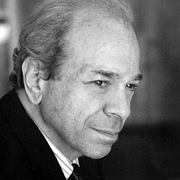Ted Morgan (1932–2023)
Author of Wilderness At Dawn: The Settling of the North American Continent
About the Author
Ted Morgan is the Pulitzer Prize-winning author of Valley of Death, Maugham, My Battle of Algiers, and FDR, among other books. He lives in New York.
Works by Ted Morgan
Valley of Death: The Tragedy at Dien Bien Phu That Led America into the Vietnam War (2010) 145 copies, 4 reviews
An Uncertain Hour: The French, the Germans, the Jews, the Klaus Barbie Trial, and the City of Lyon, 1940-1945 (1990) 82 copies
How To Marry A Multi-millionaire: The Ultimate Guide To High Net Worth Dating (2006) 4 copies, 1 review
Associated Works
What If? The World's Foremost Military Historians Imagine What Might Have Been (1999) — Contributor — 1,808 copies, 25 reviews
What Ifs? of American History : Eminent Historians Imagine What Might Have Been (2003) — Contributor — 504 copies, 7 reviews
The Age of Magnificence: The Memoirs of the Duc De Saint-Simon (1820) — Editor, some editions — 38 copies
MHQ: The Quarterly Journal of Military History — Spring 1998 (1998) — Author "A Quagmire Avoided?" — 15 copies
MHQ: The Quarterly Journal of Military History — Winter 1990 (1989) — Author "When the Maquis Stood and Fought" — 12 copies
Tagged
Common Knowledge
- Legal name
- Morgan, Ted
- Other names
- Gramont, Sanche de
- Birthdate
- 1932-03-30
- Date of death
- 2023-12-13
- Gender
- male
- Nationality
- France
USA - Birthplace
- Geneva, Switzerland
- Education
- Yale University
- Organizations
- New York Herald Tribune
- Short biography
- Born as Sanche de Gramont; immigrated to the U.S. and changed name to Ted Morgan, an anagram of de Gramont.
Members
Reviews
Lists
Awards
You May Also Like
Associated Authors
Statistics
- Works
- 23
- Also by
- 6
- Members
- 2,518
- Popularity
- #10,194
- Rating
- 3.6
- Reviews
- 27
- ISBNs
- 74
- Languages
- 5
- Favorited
- 3


















